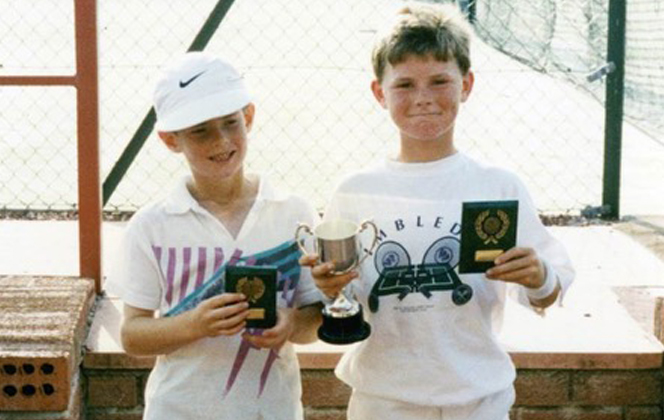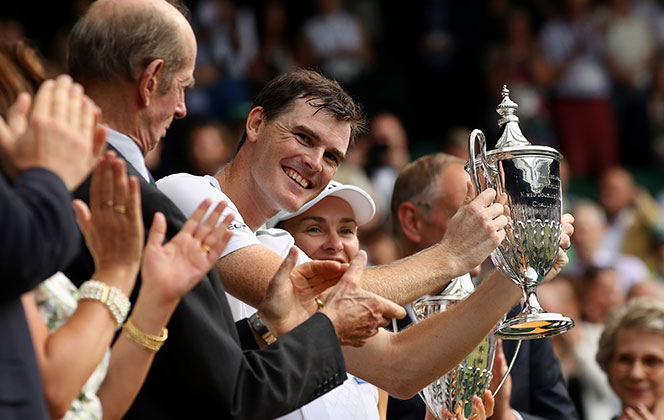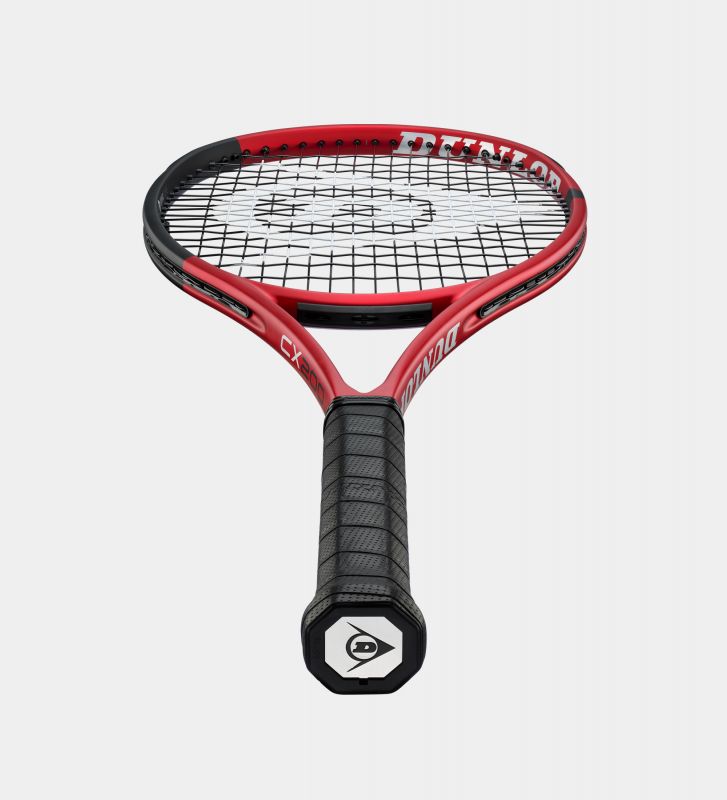JamieMurray
Falling in love with the game
I remember being good at tennis from a young age. That helped me keep playing. Like all kids, I enjoyed doing something I was good at. From there, I just kept playing. I finished juniors, I started playing professionally. Now I’m fortunate enough to play the world’s biggest tournaments, against the best players. The opportunity to do that always excited me as a kid.

I certainly prefer the competitions to training. Do I enjoy training? Sometimes, yeah sometimes no. But competing, getting in front of a lot of people and putting yourself on the line is what excites me. You want to put on a good show for the people who have paid to come and watch you.
You’re always trying to be the best you can be. That’s the motivation, to keep working hard and develop your game so you’re competitive at the top for as long as possible.
I remember being good at tennis from a young age. That helped me keep playing. Like all kids, I enjoyed doing something I was good at.
Statistiques du Joueur
My best so far
Getting to world number one in the 2016 doubles ranking was a huge achievement. It was amazing that it coincided with winning the US and Australian Open. Winning the Davis Cup in 2015 was a huge achievement for me and the whole team. Britain hadn’t won it since 1936.
I’ve had some great moments on the tennis court, particularly in the Davis cup. There have been some amazing matches. Playing in Scotland against Australia and the US, playing France at Queens. Those really stand out.

“You’re always trying to be the best you can be. That’s the motivation, to keep working hard and develop your game so you’re competitive at the top for as long as possible”
Day in. Day out.
If I’m home and training during the season, I’ll probably train for about two hours a day. Then it’s a bit of recovery work with the physio, trying to make sure I’m in the best shape I can be for the next block of tournaments. A lot of that is injury prevention work rather than strength work, the idea is to just maintain the strength throughout the season and then get after it a bit more in pre-season.
It’s definitely about hard work. I’ve seen first hand what my brother Andy puts himself through on a daily basis, the sacrifices he’s made, the level of hard work that’s gone into getting him where he is today. It’s not a fluke, it’s not based purely on talent. Certainly a few years ago he inspired me to up my game, to get myself to the top of the game.
That balance between the mental and physical really helps you go up another level. It’s important to stay fresh and not necessarily train every day. If you’re on court day after day, you go stale and when you go out to compete, you’re not at optimum focus. My mentality’s changed a lot since I first started on the tour. Now I understand so much more about the game, how it works and what needs to be done in certain situations. I’m super competitive, it really bothers me when we lose, but you learn how to deal with the ups and the downs. There’s lots going through your head and the more you experience, the more you learn how to deal with it. That’s what gives you the mental strength.
Playing and having fun is the most important aspect of it. It’s really that simple.
My pro tips
Enjoy it. It’s a great sport you can play your whole life. Playing and having fun is the most important aspect of it. It’s really that simple. Keeping the focus on the fun helps when you have a bad tennis day too. And you’ll have them. I’ve had a lot, so you get used to them. It’s part of being a tennis player – overcoming adversity. Sometimes you want to get away from the court for a few days. Sometimes you just want to get back out there and train to feel better about yourself. It all depends on the circumstances.
A big part of it is understanding that you can’t always get the result you want. So you need to ask yourself, did I give my best? Did I perform as well as I could? If I did then I’ll feel satisfied on a personal level. If I win the match, then great. If I lose, but I’ve still given my best and performed at my best, then I can sleep easy at night.
Tennis is a short career. So when I stop, I want to know I’ve done the best I possibly could. There are no second chances. So when I’m done, I want to be happy with what I’ve done.
Staying grounded
There’s a lot of dead time at tennis tournaments, lots of hanging around and waiting. I travel with Alan my coach, who’s been one of my best friends since I was six. So it’s easy to travel with him and it makes the whole thing more enjoyable. Because it definitely can be a sacrifice, being away from home, my family, my wife.
But there are lots of really nice places we get to go. There are some great tournaments on the tour. I like going to Indian Wells in March. Monte Carlo’s a nice tournament. Some of the smaller tournaments are really nice too, Borstad in Sweden, Gstaad in Switzerland. We get pretty spoiled.
Away from the court, I like playing golf and football. I used to play a lot of five-a-side games, certainly when I was growing up. Football’s great for fitness, beats being on a treadmill.
En savoir plus sur les histoires des joueurs
Rejoignez notre communauté
Merci pour l'enregistrement
Maintenant que vous faites partie de la communauté Dunlop, nous vous tiendrons au courant de nos dernières nouvelles et offres.
